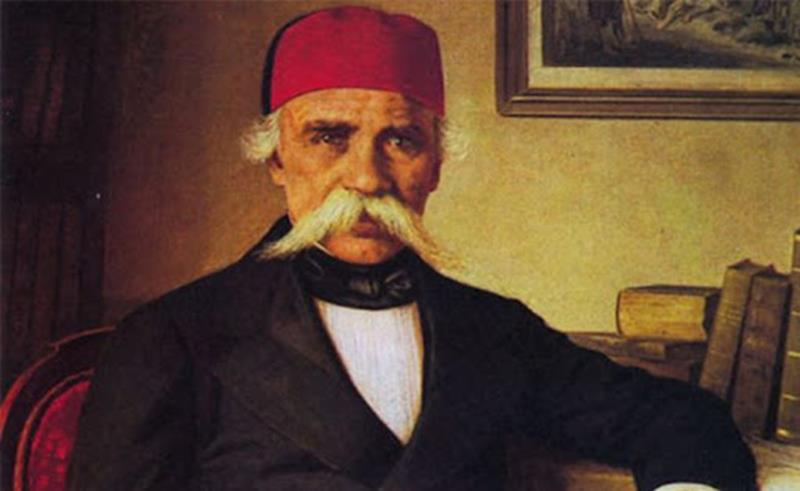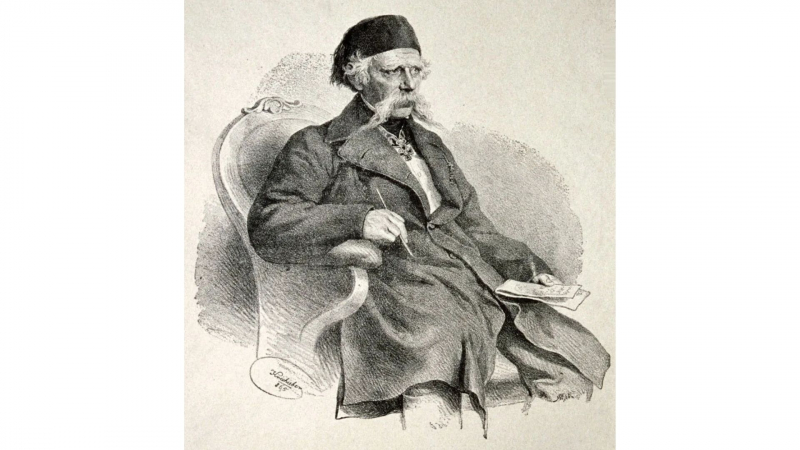Vuk Stefanović Karadžić
Vuk Stefanović Karadžić was a Serbian philologist, anthropologist, and linguist who lived from 6 November 1787 (26 October OS) until 7 February 1864. He was a key figure in the modernization of Serbian language. He was the compiler of the first Serbian dictionary in the new reformed language, and Encyclopaedia Britannica called him "the father of Serbian folk-literature research" for his collection and preservation of Serbian folktales. Additionally, he revised the Serbian language and spelling for the New Testament translation. Jacob Grimm, Johann Wolfgang von Goethe, and historian Leopold von Ranke were all acquainted with him. He was also highly known internationally. The main source for Ranke's 1829 book Die serbische Revolution ("The Serbian Revolution") was Karadžić.
Around the same time, Vuk Karadžić adopted stringent phonetic rules based on the Czech alphabet of Jan Hus and Johann Christoph Adelung to reform the Serbian literary language and standardize the Serbian Cyrillic alphabet. The Serbian literary language was modernized, separated from Serbian and Russian Church Slavonic, and made closer to everyday speech by Karadžić. The significance of the Kosovo Myth in Serbian national identity and history was established in large part because of his work.
Karadžić received honors all around Europe. He received several honorary doctorates, was decorated by the Russian and Austro-Hungarian kings, the Prussian king, the Order of Prince Danilo I, the Russian academy of science, and other learned societies throughout Europe. He was chosen as a member of the Imperial Academy of Sciences in Vienna, the Prussian Academy of Sciences, and the Russian Imperial Academy of Sciences. The year 1987 was designated as Vuk Karadžić's by UNESCO, and Karadžić was made an honorary citizen of Zagreb.












